Fellow mountaineering ranger Tucker Chenoweth and I recently returned from a climbing patrol on Mount Foraker. Our primary objective was the Sultana Ridge route on this 17,400-foot Alaska Range peak located across the Kahiltna Glacier from Mount Hunter and Mount McKinley. Mount Foraker typically sees between ten and fifteen climbing attempts each season, mainly on our intended climbing route. This peak and our intended route were both first attempts for Tucker and myself.
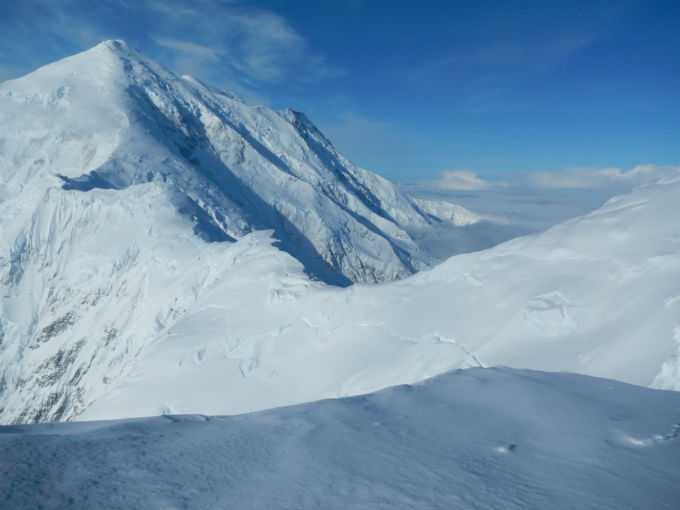
Mount Foraker with the Sultana Ridge in the foreground (NPS Photo/D. Weber)
On April 27, Tucker and I flew to the glacier to first install the NPS radio repeater on the top of Mt. Crosson and then begin our climb. We scouted the access couloir on the south side of Mount Crosson the following day. The decision was made not to ascend on the 28th due to high and variable winds on the ridge above. We climbed from our base camp at approximately 6,500 feet over the 12,800-foot summit of Crosson and to a camp location at 12,200 feet on April 29. We chose a camp that evening on the col (saddle) between Mount Crosson and Peak 12470. The next day we returned to the summit of Mount Crosson to complete additional installation work on the seasonal NPS radio repeater that is utilized for mountain operations by the ranger patrols.
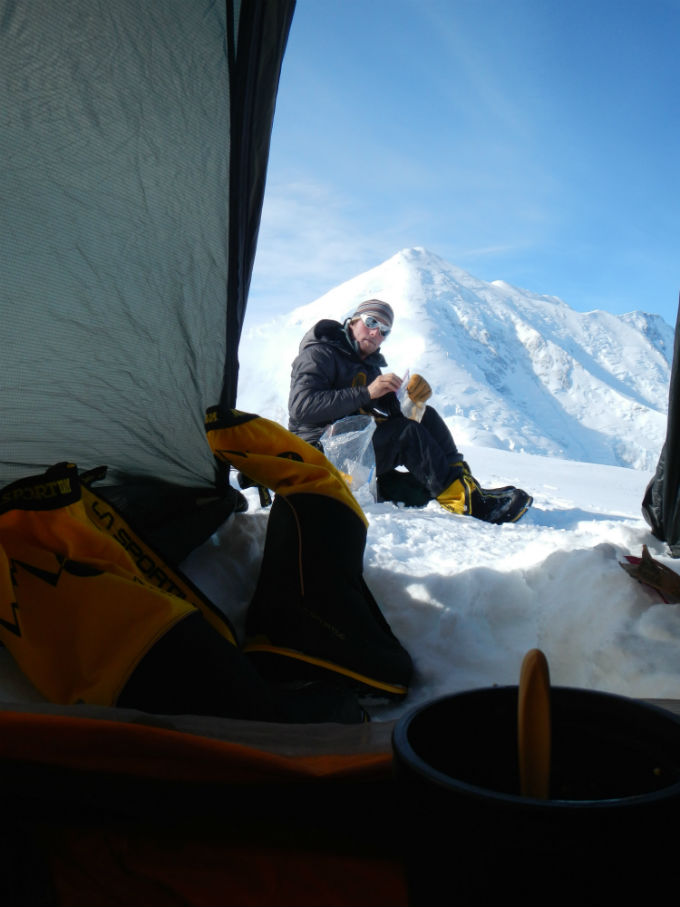
Col Camp between Mount Crosson and Peak 12740 (NPS Photo/D. Weber)
On May 1, we traversed the lower Sultana Ridge toward our eventual high camp. Tucker and I found the ridge to be in ideal condition with both firm footing and minimal crevasse fall exposure this season. A few locations with exposure to long falls required running protection with snow pickets but overall the ridge appeared much easier to manage than some of the historical climb reports we had reviewed.
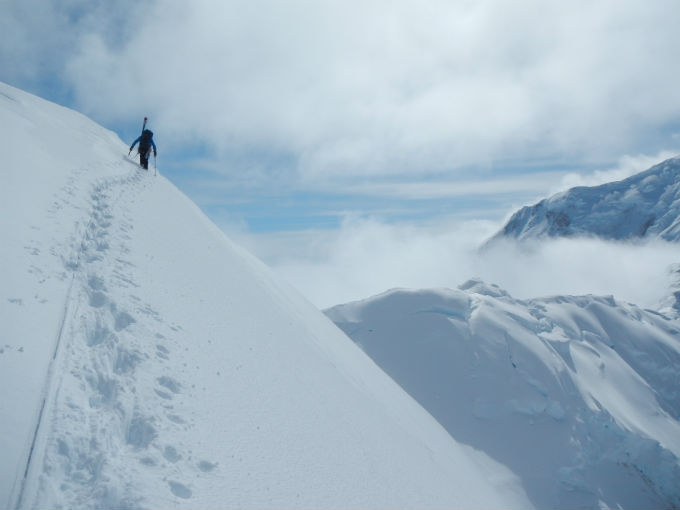
Traversing the Lower Sultana Ridge (NPS Photo/D. Weber)
We departed our high camp at 11,800 feet on the mid-morning of May 2 with the other private team climbing the route at the same time. We alternated leads throughout the day and enjoyed a relatively warm and near wind-less ascent of the upper Sultana Ridge. The views in all cardinal directions from the summit were spectacular, especially those to the rarely visible west when climbing in other areas of the Alaska Range.
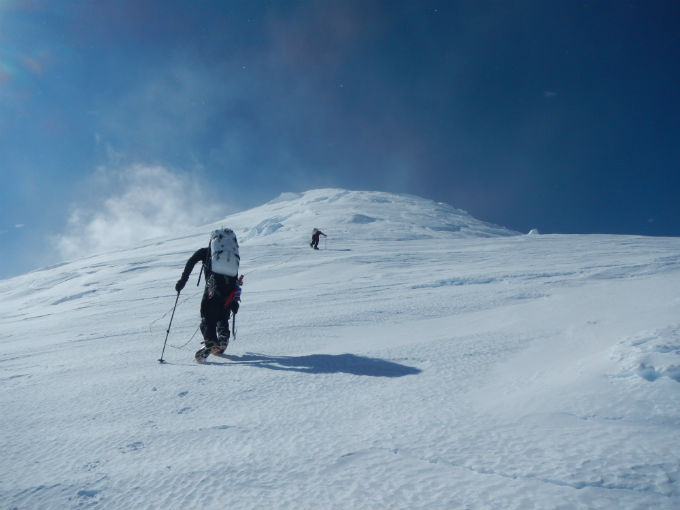
Climbing the Upper Sultana Ridge (NPS Photo/D. Weber)
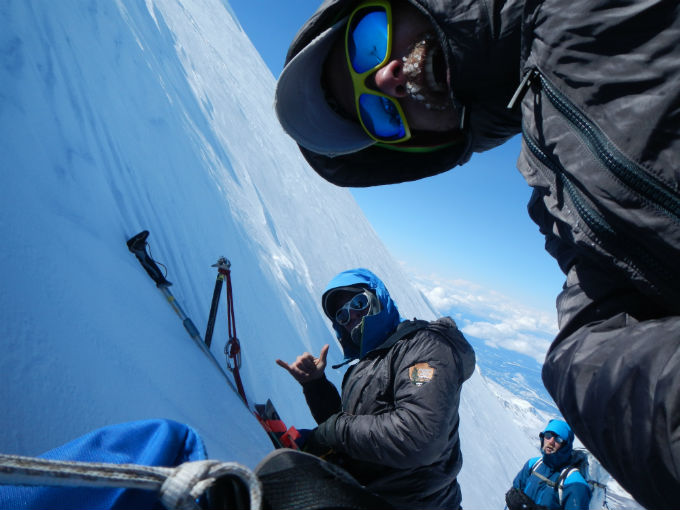
Rest break on the clmb to the summit (NPS Photo/D. Weber)
After a short celebration and obligatory summit photos, we began our descent and the complete retracing of our ascent route over the following two days.
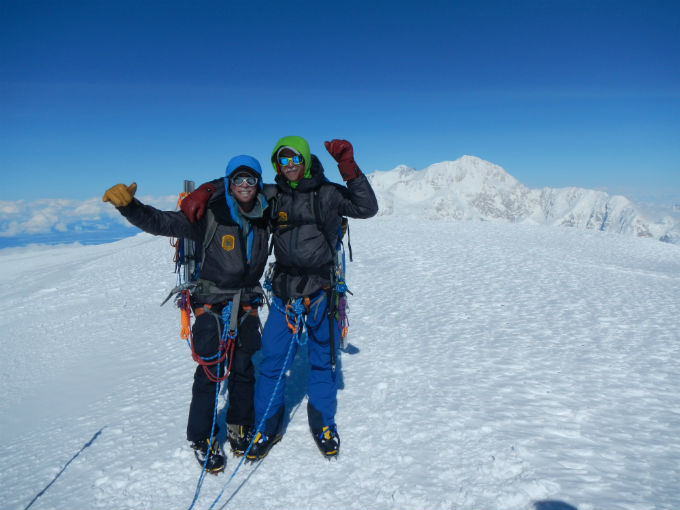
Summit photo (NPS Photo/D. Weber)
In summary, climbing this classic route on Mount Foraker was extremely enjoyable. The favorable weather and our small team allowed our climb to be completed in less than average time (two weeks being more common). Weather and visibility would have drastically changed the ease of our ascent to and descent from 17,400 feet. An ascent of the Sultana Ridge is a terrific alternative to the (at times) crowded conditions on the West Buttress of Mount McKinley during the height of the climbing season.
(And in response to the Shirleys who kindly wrote in, we've added a new photo taken from near the summit of Mount Foraker. Here is the view of Denali!)
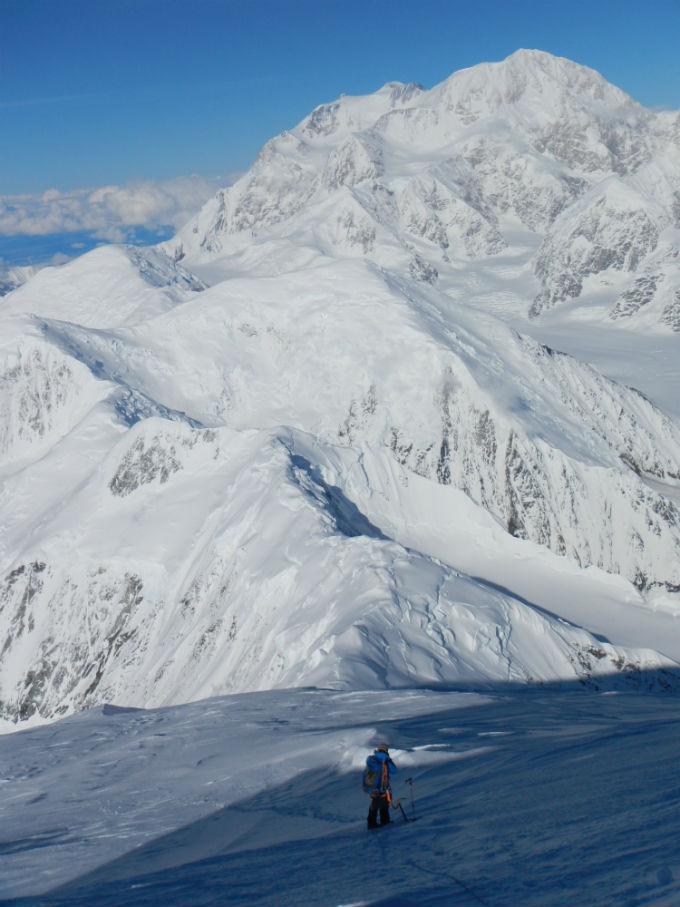
View of Mount McKinley and the Lower Sultana Ridge from Mount Foraker (NPS Photo/D. Weber)
